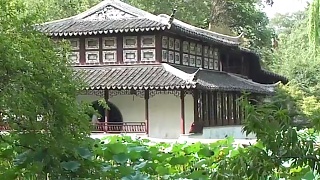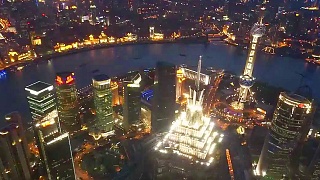
|
With TRACKS - Travel Documentaries ...
The Travels of Marco Polo
Introduction
Marco Polo, the Venetian explorer, is renowned for his extensive travels along the Silk Road during the 13th century. His journey provided Europe with one of the earliest comprehensive glimpses of the East. This guide focuses on Marco Polo's travels, with a particular emphasis on his time in China and the significant experiences he documented in his book, "The Travels of Marco Polo."
Early Journey
Marco Polo embarked on his journey to Asia in 1271, at the age of 17, accompanied by his father, Niccolò, and his uncle, Maffeo Polo. The Polo family traveled overland through the Middle East, passing through regions such as Persia (modern-day Iran) and the Pamir Mountains, enduring harsh climates and difficult terrains. Their ultimate goal was to reach the court of Kublai Khan, the Mongol ruler of China.
Arrival in China
In 1275, after nearly four years of travel, Marco Polo and his family arrived at the court of Kublai Khan in Shangdu (Xanadu), present-day Inner Mongolia. Kublai Khan, impressed by their knowledge and skills, took a particular interest in Marco Polo, employing him as a diplomat and sending him on various missions throughout his empire.
Marco Polo's Time in China
Service to Kublai Khan
Marco Polo served Kublai Khan for 17 years, undertaking diplomatic missions that allowed him to travel extensively across China and other parts of Asia. He became well-acquainted with the Mongol administration and the diverse cultures within the empire. His detailed observations and accounts provided valuable insights into the life and governance of the Mongol Empire.
Explorations and Observations
During his time in China, Marco Polo visited numerous cities and regions, documenting their unique aspects. Some key places he described include:
Beijing (Khanbaliq): The capital of Kublai Khan's empire, Beijing was a bustling metropolis with grand palaces, markets, and administrative buildings. Marco Polo marveled at the city's size, organization, and the wealth displayed by its inhabitants.
Hangzhou (Quinsai): Marco Polo described Hangzhou as one of the most magnificent cities in the world, renowned for its beautiful canals, thriving commerce, and vibrant culture. He noted its sophisticated infrastructure, including bridges, markets, and gardens.
Suzhou and its Silk Production: Marco Polo provided detailed accounts of silk production in Suzhou, highlighting the meticulous process of harvesting silk from silkworms and weaving it into luxurious fabrics. He was fascinated by the craftsmanship and the high demand for silk across the empire.
Yunnan Province: During his travels, Marco Polo ventured into Yunnan, describing its diverse ethnic groups and unique customs. He also noted the region's rich natural resources, including gold and other minerals.
Tibet: Marco Polo's travels took him to the Tibetan Plateau, where he documented the distinctive culture, religious practices, and the high-altitude lifestyle of the Tibetan people.
Technological and Cultural Observations
Marco Polo's accounts also included descriptions of various technologies and cultural practices he encountered in China:
Paper Money: Marco Polo was fascinated by the use of paper money, a novel concept to Europeans at the time. He described the process of printing and distributing paper currency, which facilitated trade across the vast empire.
Postal System: The efficient postal system, known as the "Yam," impressed Marco Polo. This network of relay stations and couriers enabled swift communication and the transportation of goods and information across great distances.
Innovations and Inventions: Marco Polo documented various Chinese inventions, such as gunpowder, printing, and the compass, which later had a profound impact on European technology and exploration.
Cultural Exchange: Marco Polo's interactions with diverse cultures within the Mongol Empire enriched his understanding of different customs, religions, and lifestyles. His accounts reflect the multicultural nature of the Silk Road and the exchange of ideas and knowledge it facilitated.
Return to Venice
In 1292, after spending 17 years in China, Marco Polo and his family decided to return to Venice. They joined a Mongol princess's escort on her journey to Persia, eventually making their way back to Europe via the Indian Ocean and the Arabian Sea. They arrived in Venice in 1295, after 24 years of travel.
Legacy of Marco Polo
Marco Polo's detailed accounts of his travels were compiled into a book, "The Travels of Marco Polo," which became one of the most important sources of information about the East for Europeans. His descriptions of the wealth, culture, and innovations of China and other Asian regions inspired future explorers, including Christopher Columbus, and significantly influenced European knowledge and perceptions of Asia.
Marco Polo's travels along the Silk Road highlighted the interconnectedness of the world through trade and cultural exchange, and his legacy continues to be celebrated as a testament to the spirit of exploration and curiosity.
|






 Living in the Now (philosophy)
Living in the Now (philosophy)












